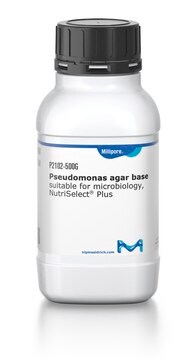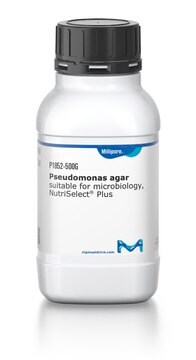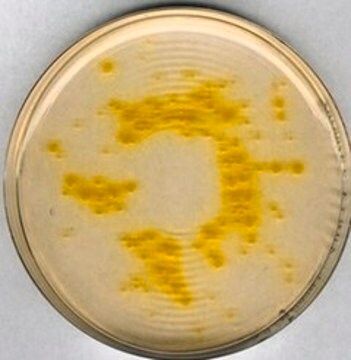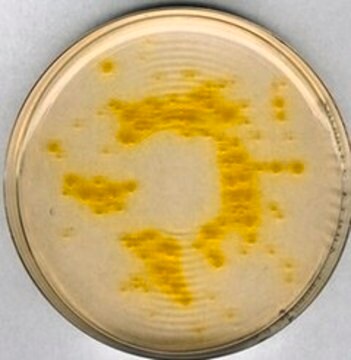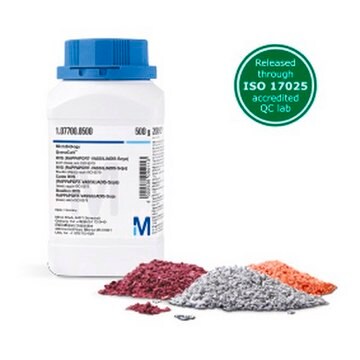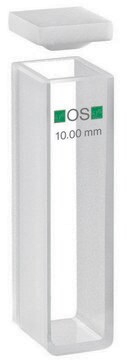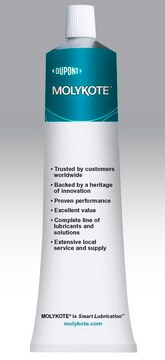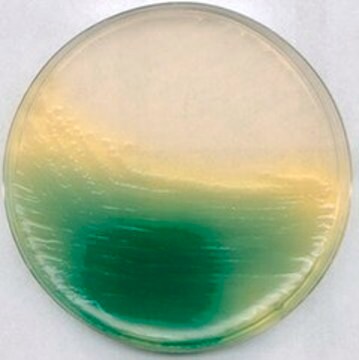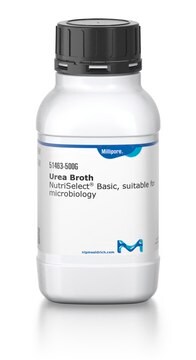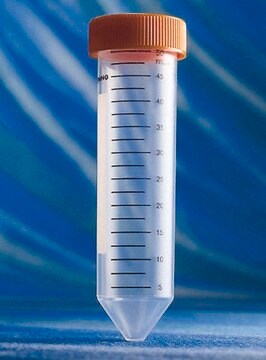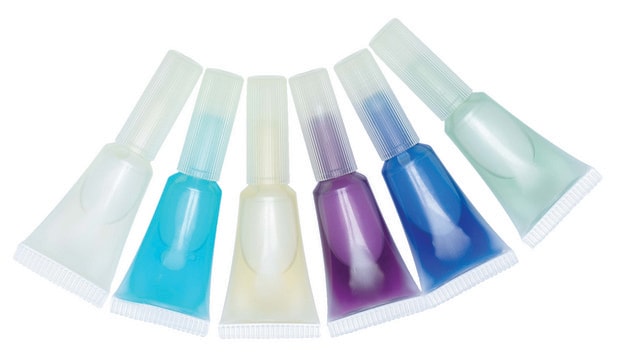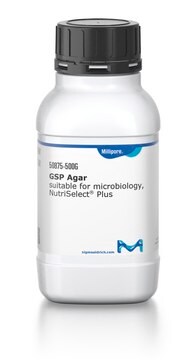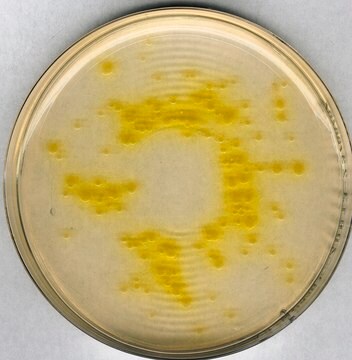17208
Pseudomonas Isolation Agar
NutriSelect® Plus, suitable for microbiology, for primary isolation and identification of Pseudomonas
Synonyme(s) :
Pseudomonas Agar
About This Item
Produits recommandés
Niveau de qualité
Stérilité
non-sterile
Forme
powder
Durée de conservation
limited shelf life, expiry date on the label
Composition
agar, 13.6 g/L
magnesium chloride, 1.4 g/L
peptic digest of animal tissue, 20 g/L
potassium sulfate, 10 g/L
triclosan (Irgasan), 0.025 g/L
Conditionnement
pkg of 500 g
Fabricant/nom de marque
NutriSelect® Plus
Technique(s)
microbiological culture: suitable
pH final
7.0±0.2 (25 °C)
Application(s)
agriculture
clinical testing
environmental
food and beverages
water monitoring
microbiology
Température de stockage
2-25°C
Adéquation
selective for Pseudomonas spp.
Description générale
Application
Notes préparatoires
Note de bas de page
The designations basic, plus, or prime are added to indicate the quality control level, from basic quality control to standard QC plus to prime for full regulatory compliance.
Informations légales
Mentions de danger
Conseils de prudence
Classification des risques
Aquatic Chronic 2
Code de la classe de stockage
11 - Combustible Solids
Classe de danger pour l'eau (WGK)
WGK 3
Point d'éclair (°F)
Not applicable
Point d'éclair (°C)
Not applicable
Équipement de protection individuelle
Eyeshields, Gloves
Faites votre choix parmi les versions les plus récentes :
Déjà en possession de ce produit ?
Retrouvez la documentation relative aux produits que vous avez récemment achetés dans la Bibliothèque de documents.
Les clients ont également consulté
Notre équipe de scientifiques dispose d'une expérience dans tous les secteurs de la recherche, notamment en sciences de la vie, science des matériaux, synthèse chimique, chromatographie, analyse et dans de nombreux autres domaines..
Contacter notre Service technique